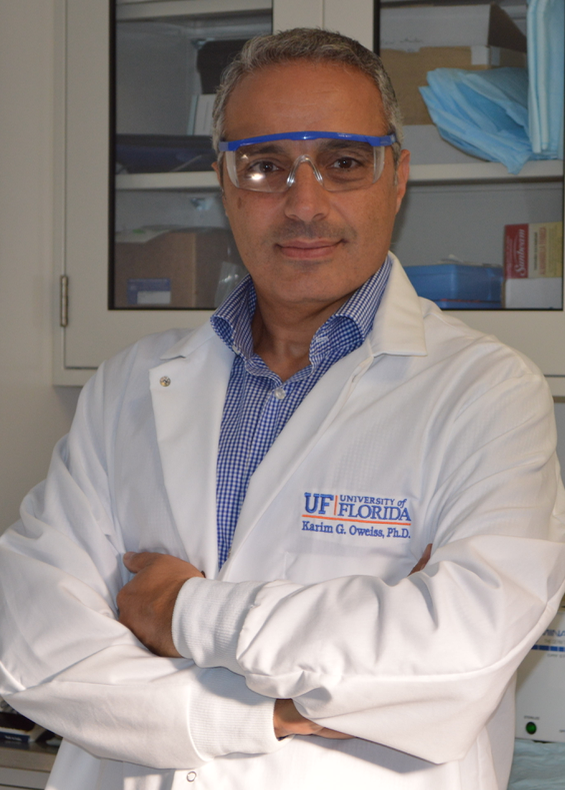[via uf news]
With a $4.2 million award from Defense Advanced Research Projects Agency, or DARPA, Karim Oweiss, Ph.D., a professor of electrical and computer engineering, biomedical engineering and neuroscience, will study the mechanisms by which cranial nerve stimulation can affect brain activity. His lab will use advanced optical imaging that will produce extremely high-resolution images of brain dynamics to map the functional circuitry in areas of the brain responsible for executive function. Additionally, optogenetic interrogation, a technique to drive specific brain cells to fire or go silent in response to targeted illumination, will be used to study the causal involvement of these areas in learning cue salience and working memory formation in rodents trained on auditory discrimination and decision making tasks.
 Oweiss will collaborate with Qi Wang, an assistant professor at Columbia University. Wang’s lab will focus on the noradrenergic pathway — a neuromodulator widely responsible for brain attention and arousal — and the extent to which it is engaged when rodents learn a tactile discrimination task.
Oweiss will collaborate with Qi Wang, an assistant professor at Columbia University. Wang’s lab will focus on the noradrenergic pathway — a neuromodulator widely responsible for brain attention and arousal — and the extent to which it is engaged when rodents learn a tactile discrimination task.
Oweiss’ project seeks to demonstrate the effects of vagal nerve stimulation on cognitive-skill learning and the brain activity supporting those skills, as well as to optimize the stimulation parameters and training protocols for long-term retention of those skills.
“We want to see if it’s possible to promote targeted changes in specific brain circuits to accelerate this process by stimulating the vagus nerve, which sends close to 80 percent of its output back to the brain,” Oweiss said. “So if one knows that ‘brain area A’ talks to ‘brain area B’ when learning a new language, can we develop training protocols that promote the exchange between these two areas while leaving other areas unaltered? Then the person will learn at a faster rate and retain the skills for much longer.”
The implications of both projects reach beyond accelerated learning speeds. “If we identify specific ways that neural pathways change as a person learns, then if a person loses brain function, we could potentially rewire disconnected brain areas and personalize neural rehabilitation,” said Oweiss. “This technology could be used to restore quality of life much quicker if brain function has been compromised.”

